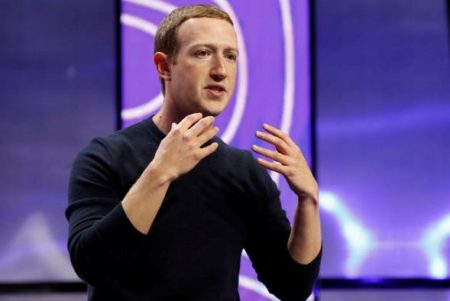February 20, 2020 – Four days ago Mark Zuckerberg in an op-ed in the British publication, The Financial Times, stated: “Every day, platforms like Facebook have to make trade-offs in important social values — between free expression and safety, privacy and law enforcement, and between creating open systems and locking down data.” He went on to state: “I don’t think private companies should make so many decisions alone when they touch on fundamental democratic values.”
His op-ed piece comes after what is being seen as a technology backlash against Facebook, Google, YouTube, Twitter, and other web platforms that profit from data freely posted by users. Some of that very public backlash came on February 3rd when prolific author, Stephen King, announced he was quitting Facebook citing he was not comfortable with the site’s political advertising, the proliferation of fake news on it, and its inability to protect user privacy. King isn’t the only one leaving Facebook. Even some of the company’s employees are questioning Zuckerberg’s previous statements about responsibility for the content of political advertising on the social network site. He has previously stated, that as a private company, he is willing to take money from any advertiser without accepting responsibility for the veracity of the content, and that includes political ads and what purports to be real news.
Facebook and Google have altered the news paradigm and today are the primary source for information for billions around the planet. Posting on Facebook, however, does not come under the same level of scrutiny, as an article published in a print newspaper. Newspapers can be sued for libel. Facebook claims it has no responsibility for content posted on it. In other words, it is only a frame and users are the ones responsible for the art that appears inside it.
Zuckerberg is now asking that a new regulatory system be put in place run by a third party to provide guidance for newsworthy content placed on Facebook’s pages. Should that be a government-run regulator, or something else?
Back in January, I posted on this site an article entitled, “Is It Time to Kill Facebook? Pondering Whether to Abandon the Social Network.” I wrote, “Facebook, today, is the preeminent social network on the planet. It is also one of the largest purveyors of misinformation posed as news to billions of subscribers. The company leadership, from Mark Zuckerberg downward, appears blind to the misrepresentation of facts presented in Facebook ads and news feeds. Facebook seems equally blind to misinformation designed to reinforce prejudice and racial and ethnic divisions around the world.”
Nancy Pelosi, the U.S. Speaker of the House of Representatives described Facebook as not caring about the truth. I described the social network news feeds as “yellow journalism,” a reference to the tabloid press that one can buy at the checkout counters of local grocery stores.
So when Zuckerberg writes about working with governments on questions of regulation it seems to run counter to everything we know about how the social network promotes content whether it be “news,” or political ads. In his op-ed he states: “We believe advertising is more transparent on Facebook than television, print or other online services.” That’s an interesting take on the history of Facebook’s advertising content. Zuckerberg justifies the comment by citing recent changes to Facebook policy with the publishing of details about who is paying for ad content on the social network.
He then muddies the water by asking “who decides what counts as political advertising in a democracy” noting that a non-profit can run an ad during an election that could be considered political, and so could any private company, or government. I guess that’s his way of claiming no responsibility and blaming the content providers.
He further states that “Tech companies should serve society,” and that “people need to feel that global technology platforms answer to someone.” But then concludes “I believe good regulation may hurt Facebook’s business in the near term but it will be better for everyone, including us, over the long term.” The last part of this sentence is sort of Zuckerberg’s mea culpa but it is hard to believe he is serious about accepting government oversight when Facebook with its 2.5 billion users is bigger than any nation on the planet.
What government or governments will exercise regulatory control over such a behemoth? And what are the limits of that control? The Internet was designed with no national boundaries even though countries like China and Russia are trying to wall their digital universes off from the rest of the planet. It will be interesting to see if regulation is in Facebook’s future. Or in time, will the social network hemorrhage more and more users who are turned off by the dishonesty and misinformation spread by it?









